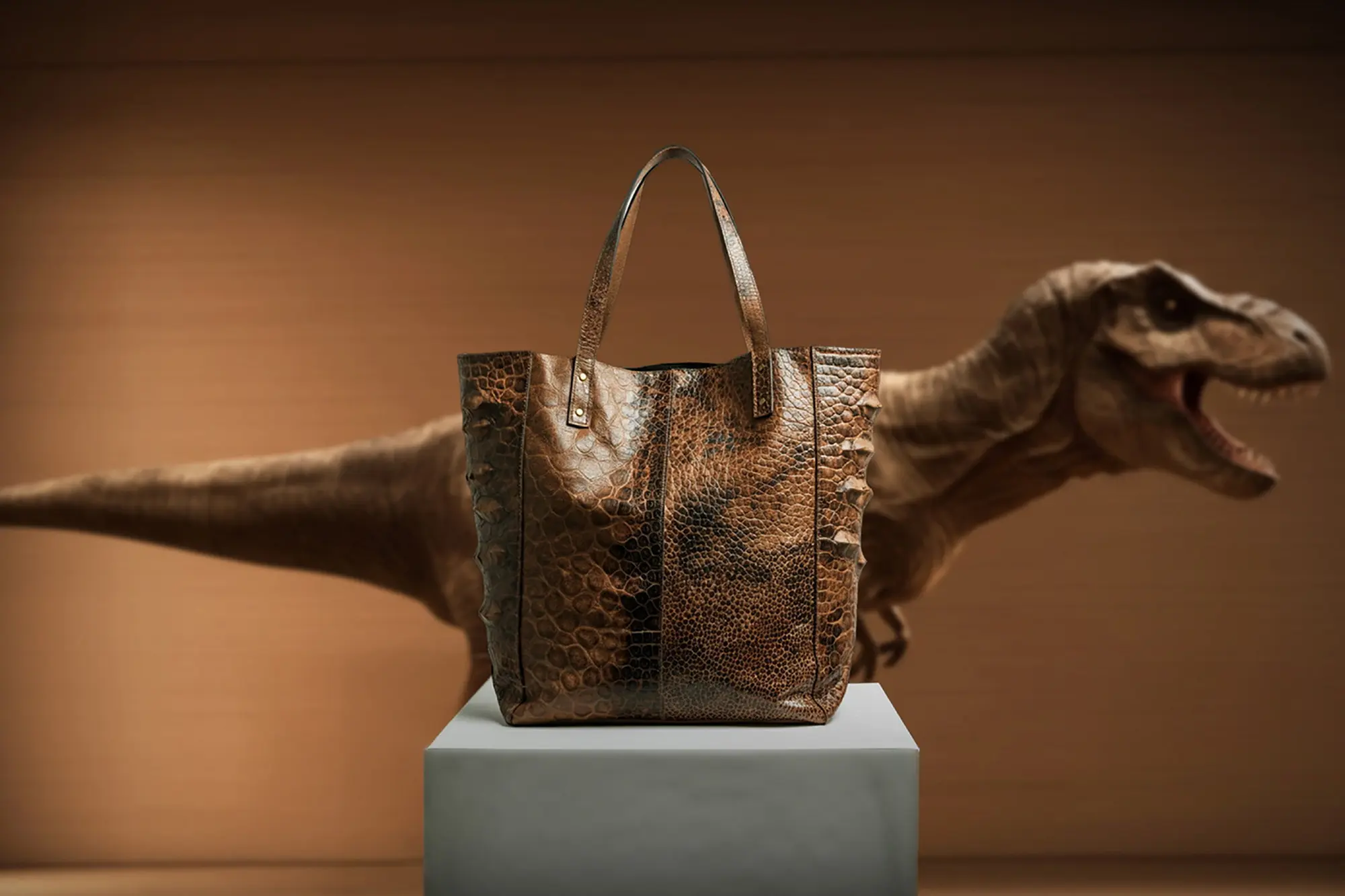Researchers Dispute ‘Leather-Like’ T. rex Skin Claims

A collaboration between the US-based marketing agency VML and two biotechnology firms, The Organoid Company from the Netherlands and Lab-Grown Leather Ltd from the UK, aims to revolutionize the luxury fashion industry by creating accessories from lab-grown T-rex leather. This innovative material, derived from fossilized T. rex collagen, is touted as an eco-friendly and cruelty-free alternative to traditional leather. However, experts in paleontology express skepticism regarding the feasibility of producing genuine T-rex leather, citing the absence of necessary DNA and the limited understanding of T. rex skin characteristics.
Concerns from Paleontologists
Thomas Holtz, Jr., a vertebrate paleontologist at the University of Maryland, has voiced concerns over the claims surrounding T-rex leather, labeling them as “misleading.” He points out that DNA degrades significantly after an organism’s death, and no dinosaur-era DNA has been discovered to date. The oldest preserved DNA on record is approximately 2 million years old, while T. rex went extinct around 66 million years ago. Holtz emphasizes that researchers have not found adequate samples of tyrannosaurid skin, as soft tissues like skin are rarely preserved in fossils. This lack of evidence raises questions about the authenticity of the proposed T-rex leather.
Understanding Dinosaur Collagen
The new T-rex-themed leather will utilize T-rex collagen, which has been identified in some fossilized bones. Initially thought to be lost during the fossilization process, this collagen has been found in certain dinosaur remains. However, experts like Thomas Carr, an associate professor of biology at Carthage College, remain doubtful about the practicality of using T-rex collagen for leather production. Carr notes that the current understanding of T-rex collagen is limited due to the fragmented nature of fossilized polypeptides. Without comprehensive knowledge of the collagen’s properties, the potential for creating a viable leather alternative remains uncertain.
The Future of Lab-Grown Leather
While the partnership between VML and the biotechnology firms presents an intriguing concept, the skepticism from the scientific community highlights significant challenges. The absence of T. rex DNA and the limited fossil record of soft tissues complicate the endeavor to produce authentic T-rex leather. As the fashion industry increasingly seeks sustainable and ethical materials, the development of lab-grown alternatives continues to be a topic of interest. However, the feasibility of using T-rex collagen as a basis for luxury accessories remains to be seen, as researchers continue to explore the complexities of ancient biological materials.
Observer Voice is the one stop site for National, International news, Sports, Editor’s Choice, Art/culture contents, Quotes and much more. We also cover historical contents. Historical contents includes World History, Indian History, and what happened today. The website also covers Entertainment across the India and World.

